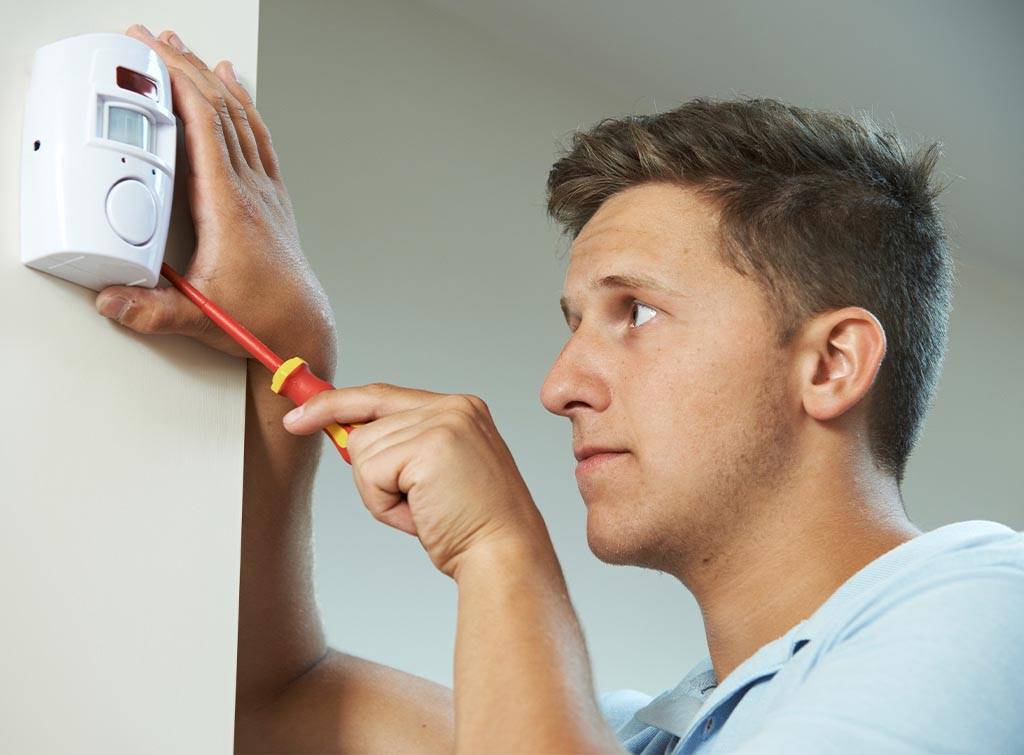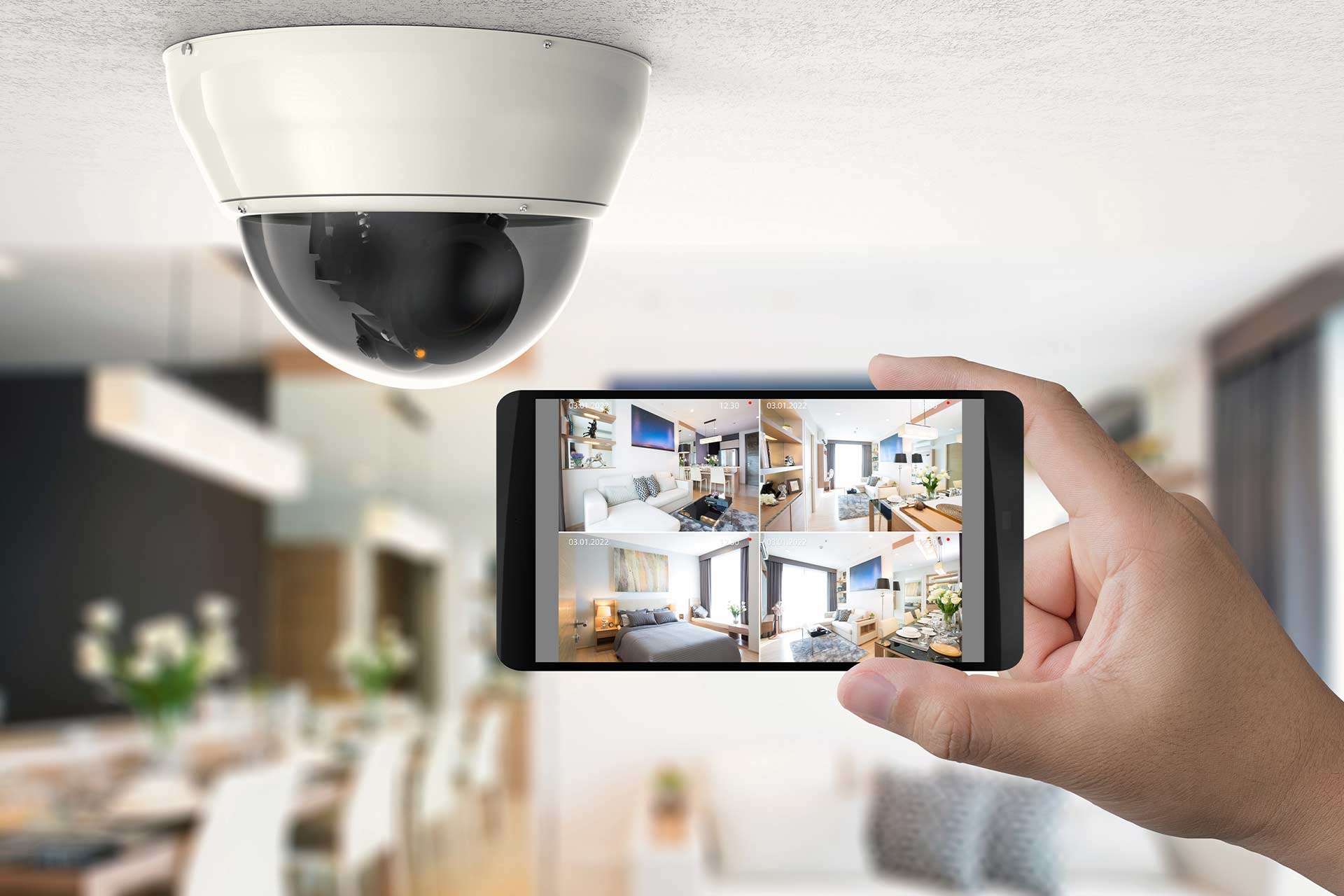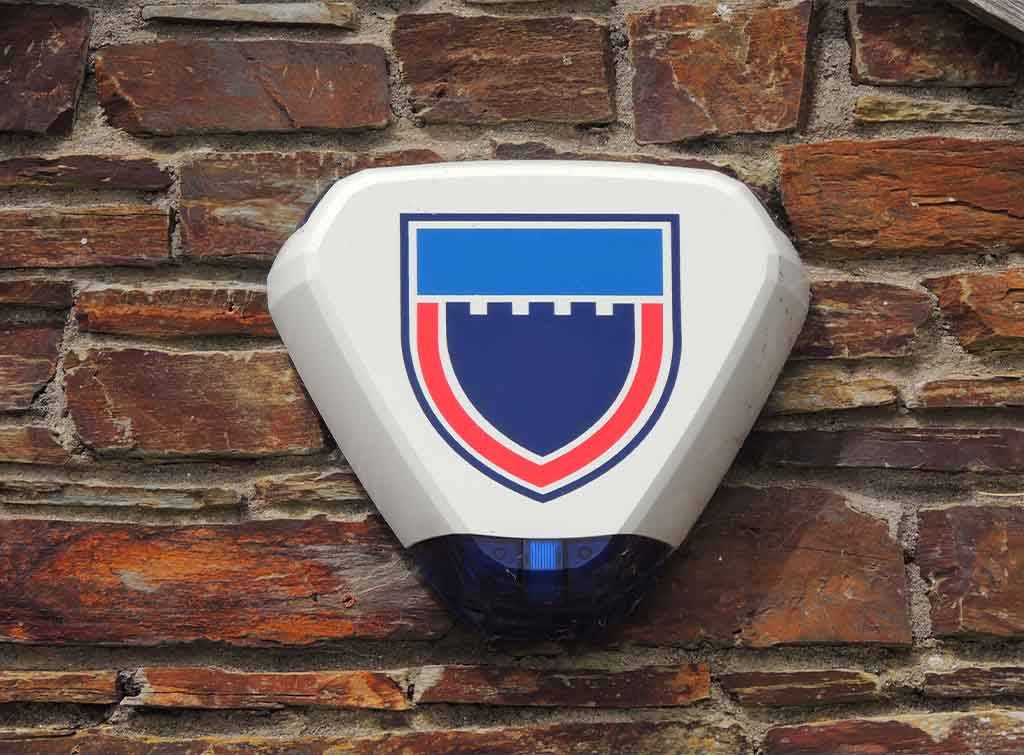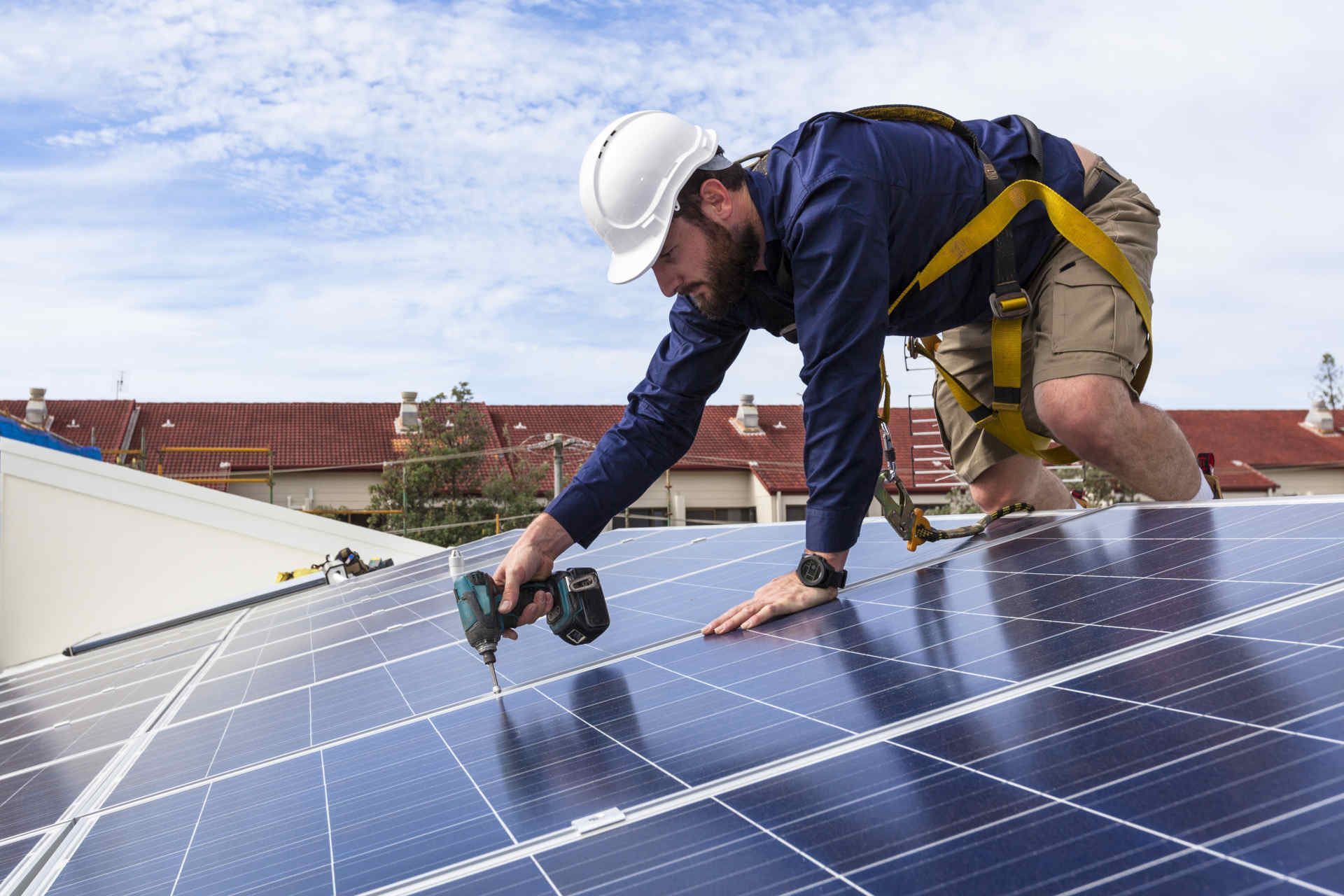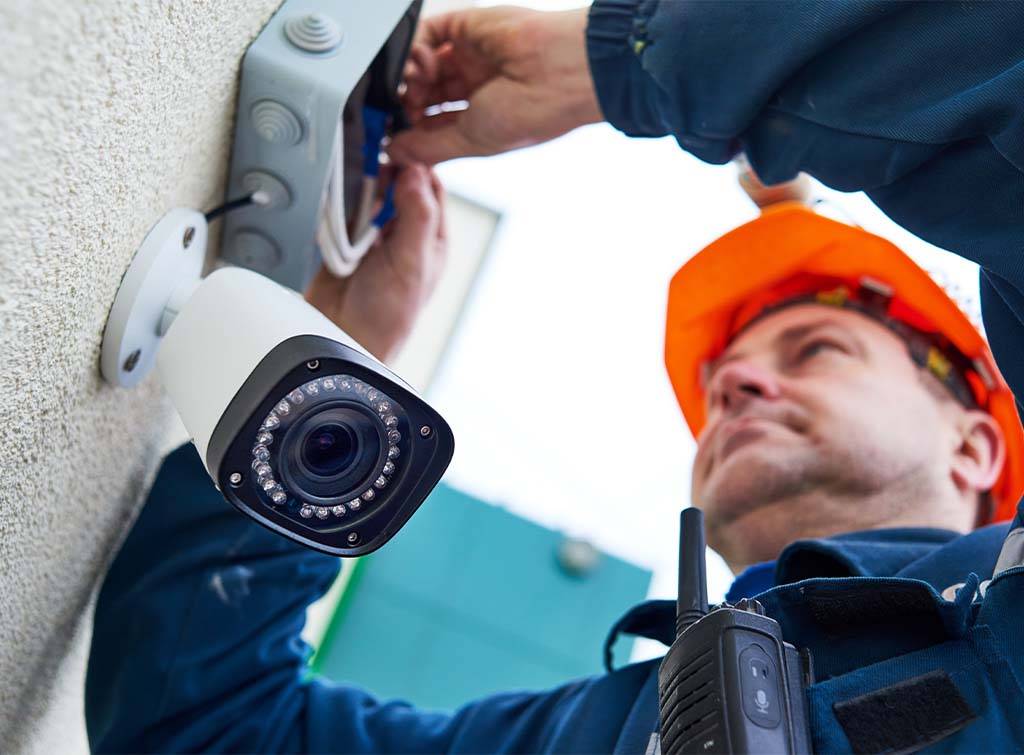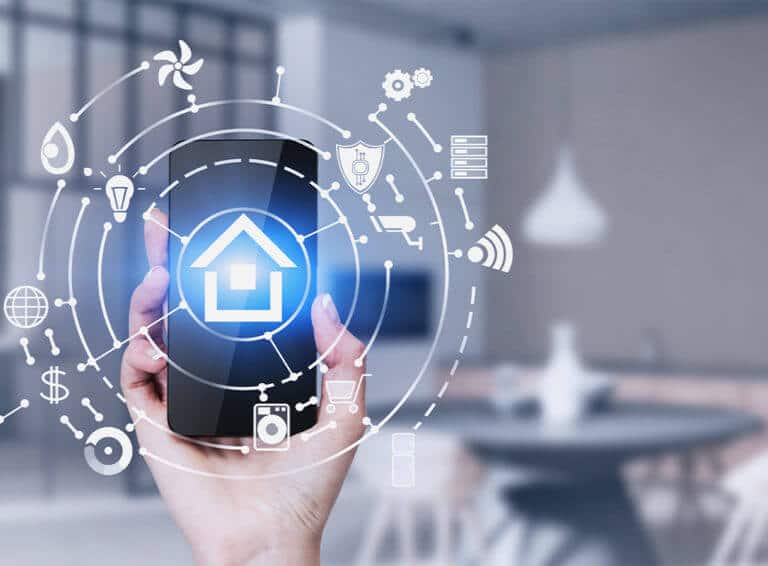Blog>Expert Advice>Buying guide: Helping you to choose the best security alarm system
Last updated: 26 November 2024
Buying guide: Helping you to choose the best security alarm system
Want a home alarm but not sure where to start? Our guide takes a deep dive into the best security alarm systems so you can make the right choice to protect your home.
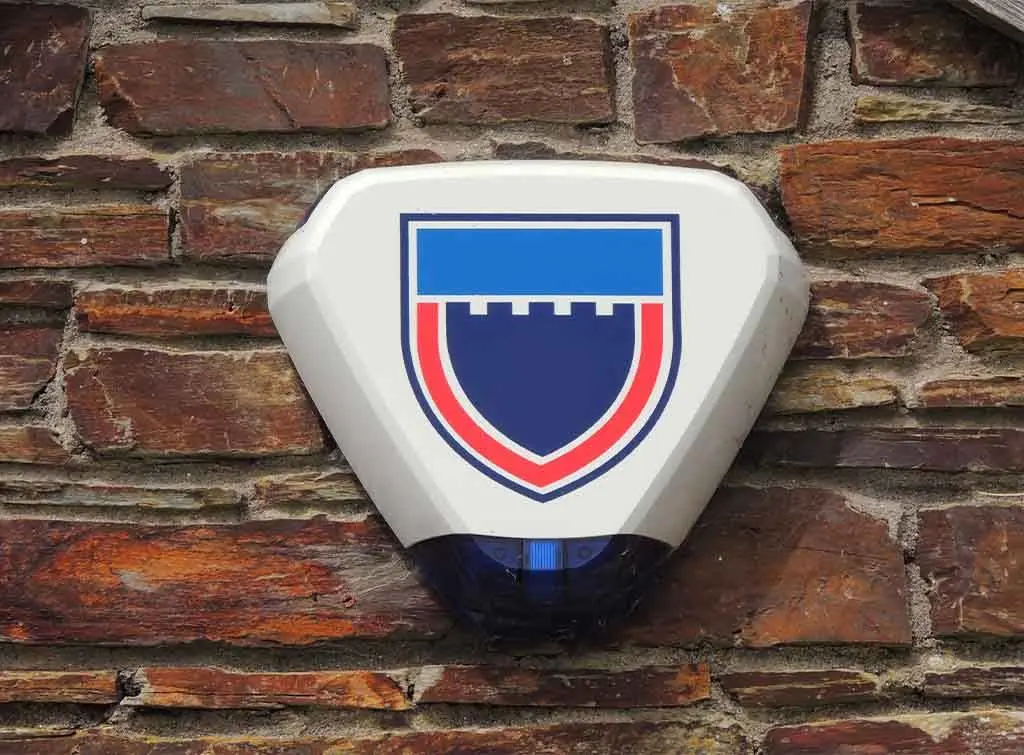
We all want to protect our property and feel safe in our own homes - that's why more and more homeowners are installing security alarm systems.
Choosing the best home security system can also help deter burglars and give you extra peace of mind - especially if you live on your own or in a remote part of the country.
If you're not sure what you need, help is at hand with our home alarm systems guide.
We compare features, costs, and types of alarms so you can buy the right system for you and your home We'll also help you find a trusted professional for a reliable and effective installation.
See the tradespeople we've checked and recommend for your job
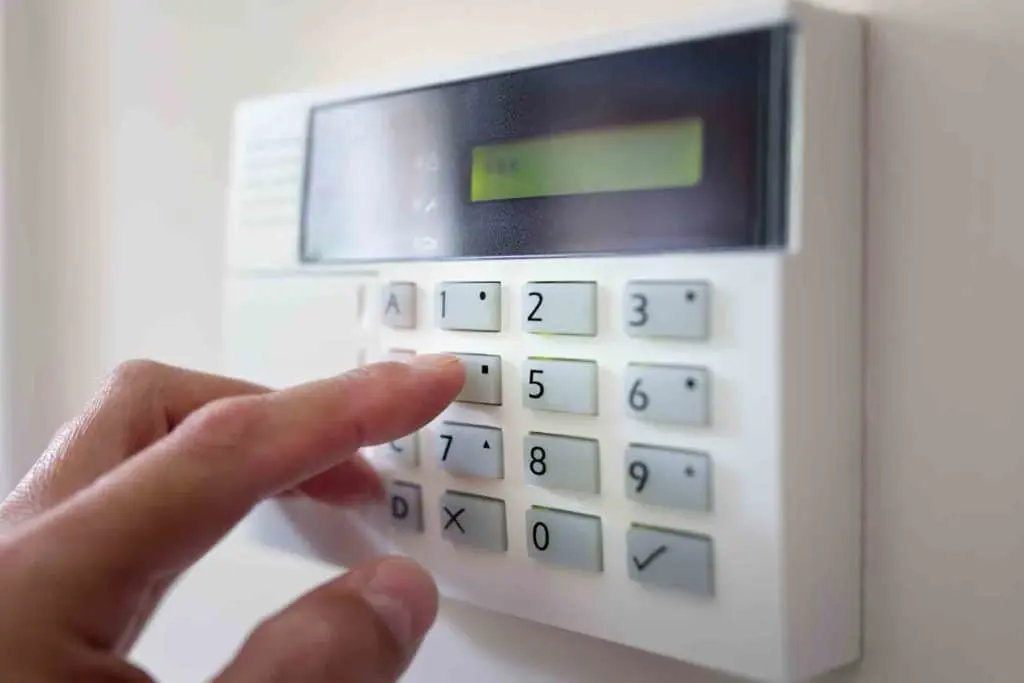
Types of security alarm systems
There are so many different types of security alarm systems, it can be difficult to know where to start.
Traditional bell alarms are perhaps the most commonly used security systems but even these come with an array of different features and technology.
As a start, here's a run down of the main home alarms:
Wired alarm systems
As its name suggests, this type of home security system uses wires to connect all of its components, including sensors, a control panel and sometimes a monitoring service.
The system's wiring is built into the walls of your home, with cables running along skirting boards and around door frames. Hard wired alarm systems are permanent installations so not suitable if you rent.
Pros
Reliable and robust
Less likely to be hacked or experience interference
Cons
Adding new devices to a wired system can be complex
Iay require extra cabling from the main panel
Wired systems are generally cheaper than wireless alarms but you will need a qualified electrician or burglar alarm specialist for installation
Get in touch with an electrician in your area who can ensure the system runs perfectly.
See the tradespeople we've checked and recommend for your job
Wireless alarm systems
Wireless alarms use radio signals to connect the system's control panel to motion sensors. Once the control panel receives a signal (such as a window or door opening), the alarm is activated.
Unlike wired systems, these are operated by battery, so there's no need for wires or cables running along frames or walls.
However, it's a good idea to get expert advice about where to place the wireless sensors for maximum efficiency. If they're placed too far away from the control panel, the signal might be too weak to trigger the alarm.
Pros
Wireless alarm systems are flexible and can be moved
They can cover a wider area than wired systems
Easy to install and no need to make physical modifications to a home, so perfect for renters
Cons
May not work effectively in properties with extremely thick walls
You'll need to regularly check and replace batteries, otherwise alarm system fails
Find burglar alarm installers near me
Your home is one of your most important belongings. So, you’ll want to protect it from intruders. Here, we’ll explore everything to do with burglar alarm installers near you – from who can carry out the job to how much it’ll cost. Want to get started on finding reliable burglar alarm installers near
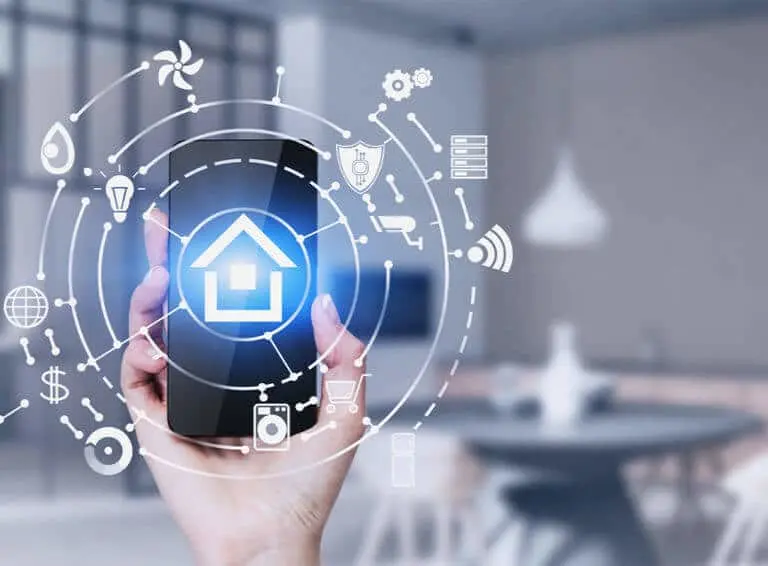
Smart security alarm systems
Smart security alarms for UK homes are the most advanced type and use wireless technology, smartphones and home Wi-Fi to monitor and protect your home.
These security systems can include door and window sensors, motion detectors, and alarms. If there's a problem, a smart alarm will send security alerts to your phone.
Smart alarm systems can also incorporate CCTV cameras that capture video in high-definition.
Pros
No need for wires or cables running along frames or walls
You can monitor your home from anywhere using connected apps on your smartphone
Instant alerts and notifications when your alarm is triggered
Can connect with other smart home devices, such as smart lighting and smart blinds
Cons
Need a good, stable internet connection
Vulnerable to cyberattacks if not installed correctly
Can be expensive to buy and install
Wireless systems work within a set distance limit in your home
Discover how to plan your smart home system in our helpful blog.
Monitored alarm systems
A monitored alarm system uses a third-party monitoring service who are notified if your alarm is set off.
If a break-in is detected, the company will phone the homeowner or a nominated contact to assess the situation (sometimes it can be a false alarm). If there is no response, agents will call the police or relevant emergency services.
Pros
Your home is monitored 24/7 by trained experts in home protection
Quick response if the alarm is triggered
Can include a variety of systems such as CCTV cameras, sensors, intruder alarms and fire detection
Cons
Expensive systems and you'll need to pay a monthly fee for the service
Installation can be more complex
False alarms (triggered by pets or insects) can lead to police being called out
Depends on reliable phone lines and internet connection
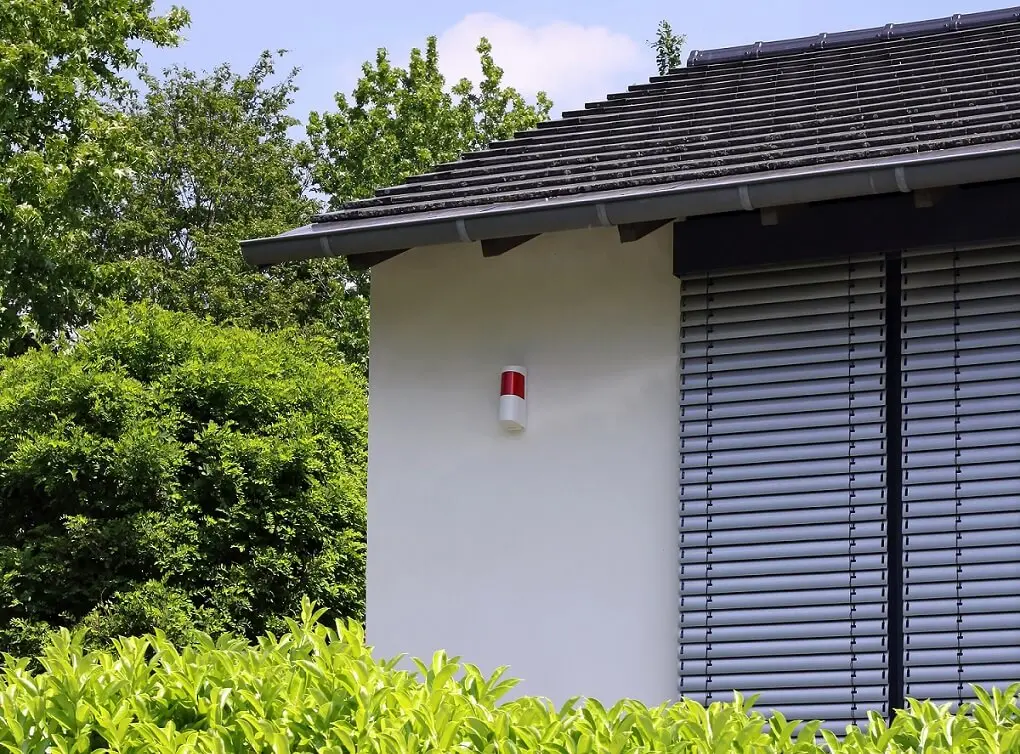
Audible alarms
An audible alarm is the most basic and most affordable home security system.
Also called a bell alarm, it emits a loud sound to scare off intruders and alert you and your neighbours that someone is trying to break in.
As such, audible alarms are more of a deterrent than a preventative measure.
Pros
Often the most affordable home security system
Simple to install and maintain
No monthly fees
High-spec systems that link with smartphone apps and text services are now available
Cons
Disruptive to you and your neighbours
Limited protection - if no one responds to the alarm, an intruder can continue to enter your home
No monitoring or police response so you will need to rely on nearby witnesses
Your own audible alarm might be hard to distinguish from others in the area
Regardless of what security system you decide to go for, we recommend hiring a tradesperson for alarm setup.
An alarm specialist can also conduct routine checks on your alarm, analysing its performance for maximum security.
See the tradespeople we've checked and recommend for your job
Choosing the right home security system
When choosing the right home security alarm system, there are some key features to look out for. You should consider things like:
Motion sensors
These can detect when someone is near or inside your home and trigger an alarm if someone enters. Different types include:
Infrared sensors: A common type of motion sensor that detects changes in body heat. They can be adjusted to ignore certain objects such as pets
Microwave sensors: Send out microwave pulses which reflect off moving objects. Can be interfered with by electrical equipment
Dual technology sensors: A combination of a passive infrared sensor and a microwave sensor that's less likely to trigger false alarms
Magnetic contact motion sensors: Placed on doors and windows to detect whether they're opened or closed
Cameras and surveillance
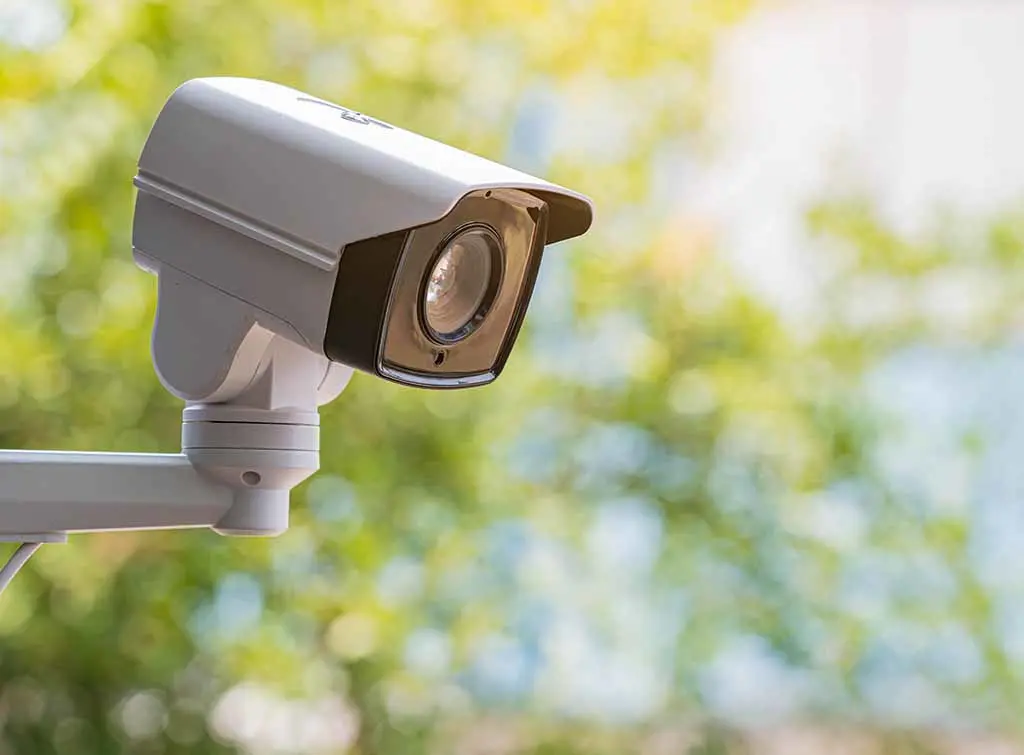
Integrating CCTV cameras into your home alarm system can boost security. While full security systems can be expensive, they will give you complete piece of mind.
Here's some of the benefits:
Connected CCTV cameras - inside and outside your home - can offer complete coverage of your property
Outside CCTV cameras are a strong visual deterrent to stop thieves
Modern CCTV systems can be monitored via an app, so you can access your security system anywhere in the world
High-end CCTV can also use night vision to capture clear footage in the night
A home CCTV system may also reduce insurance premiums
You'll need to decide whether you want a basic wired CCTV system or a full wireless high-end system that can capture high definition video.
What is the best home CCTV system?
Protecting your home has never been easier. With the market now flooded with high-tech CCTV security cameras and CCTV equipment, you can install any kind of security system or CCTV equipment for your home. In fact, you don’t even need to save a large amount upfront, with more affordable systems
Whatever system you choose, the most important way to make sure they are running correctly is to have them installed by a professional.
A CCTV installer near you can offer their expertise on what works best for your home, making it more secure all year round.
Find out how much you can expect to pay to have CCTV put in by heading to our CCTV installation cost guide.
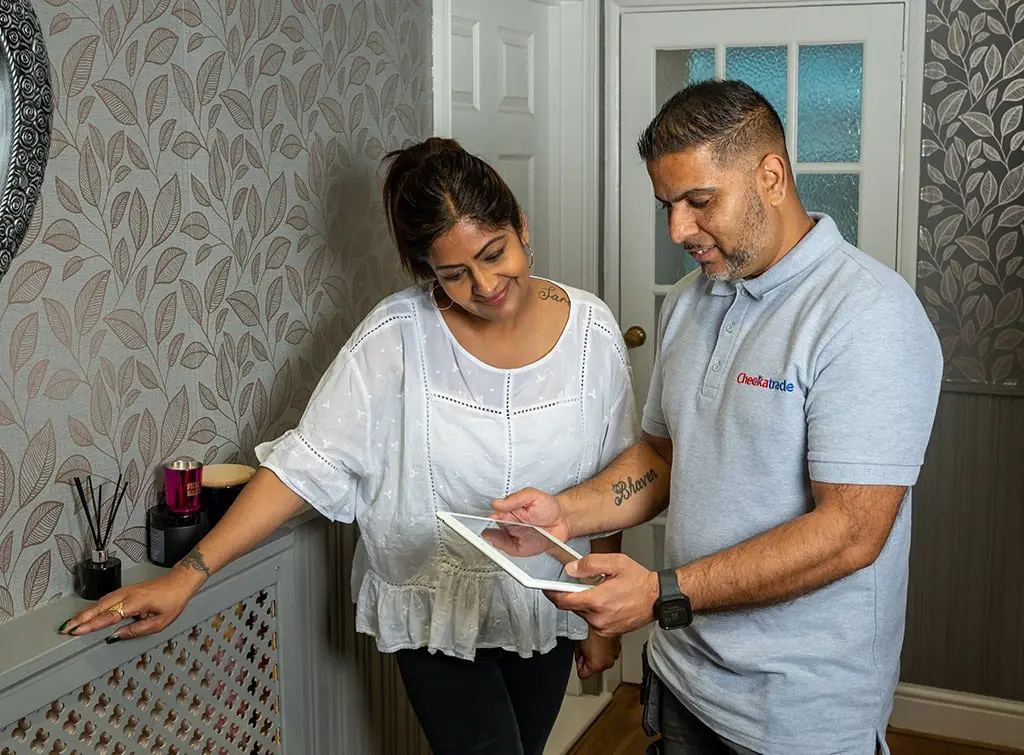
Smart home integration
Smart home alarms can integrate with other smart home devices such as smart locks, lights and blinds for better home safety and great convenience.
For example, smart lighting can deter intruders by switching the lights on when you're not home. Likewise, smart blinds that automatically open and close (for example when you're on holiday) will deter criminals from breaking into an empty property.
The result is you get a home that you feel safe in as well as being technologically-advanced and user-friendly.
You can use voice assistants like Amazon Alexa or Google Assistant to command your system
Doorbell cameras can also connect to your home's Wi-Fi and alert you to dangers in real time
You can remotely monitor and video your home 24/7 from anywhere in the world
Back up power and connectivity
Electricity cuts and WiFi outages can seriously disrupt the running of some security alarm systems.
That's why back up power and connectivity features are so important. They'll make sure your alarm stays on and your home is still protected even if you're without electricity or the WiFi goes down.
Look for:
Battery backup: keeps the system running during electricity outages
Cellular backup: keeps your system connected even if the internet goes down
Expandability
Many home security systems are expandable so you can add extra cameras or sensors without replacing the whole thing.
Wireless systems are fairly easy to expand with devices like:
Motion window sensors
Sirens
Upgraded control panel
You can add devices to a wired system but it's more complicated and you'll need an expert to help with the job.
Get in touch with a burglar alarm specialist who can look at the compatibility of your existing system.
Find burglar alarm installers near me
Your home is one of your most important belongings. So, you’ll want to protect it from intruders. Here, we’ll explore everything to do with burglar alarm installers near you – from who can carry out the job to how much it’ll cost. Want to get started on finding reliable burglar alarm installers near
How much do security alarm systems cost?
The cost of your security alarm system will depend on the technology installed, the level of protection you want and the size of your property.
Here's an idea on costs:
The price for a bell-only wired system starts from £500 for supply and install
A wireless system is a little more expensive and costs from £525 for supply and install
Expect to pay from £650 for a smart alarm system (supply and install)
The price to supply a CCTV system costs from £800 - that's excluding labour
To make sure your home alarm is installed properly and working correctly, you’ll want to hire a professional who comes recommended.
The best burglar alarm installers will only install an approved system.
Home security installers near you will typically charge around £60-£80per hour.
You'll also need to factor in maintenance costs and ongoing fees if you have a monitored alarm system. Burglar alarm servicing typically costs £90 and takes around one to three hours.
How much does a burglar alarm cost?
Want to make your home secure? Take a look at our cost guide which covers the average supply and installation costs of burglar alarms.
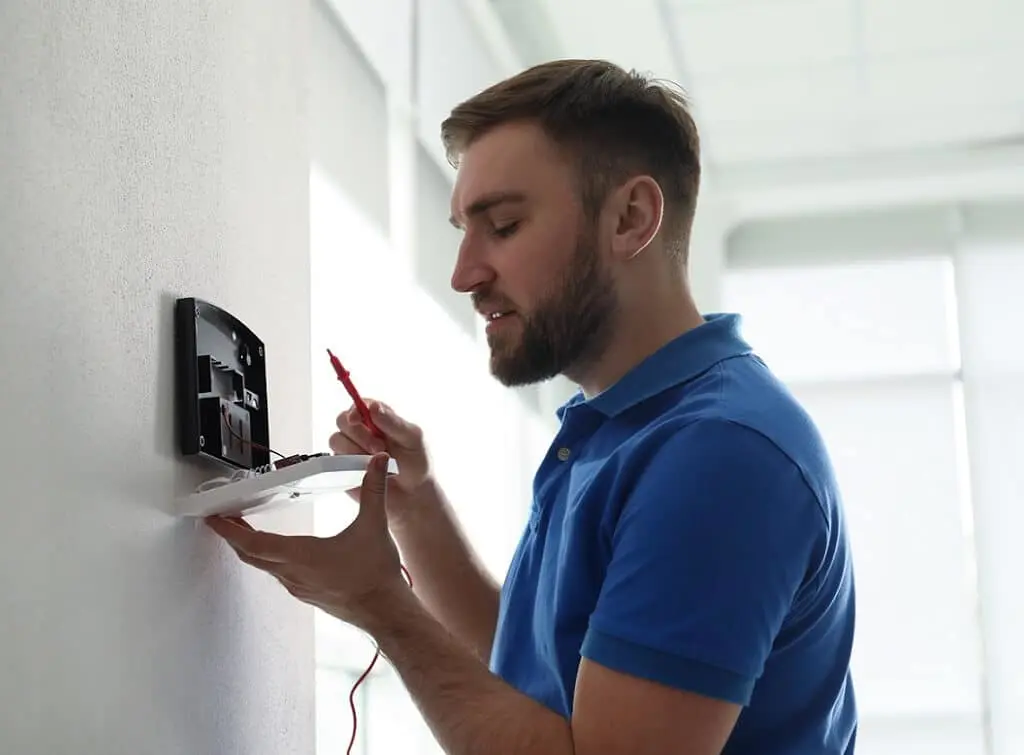
Benefits of hiring a professional to install your alarm
Hiring an experienced tradesperson for alarm setup comes with many benefits.
Here are the main ones:
Expertise, knowledge and skills to recommend and install the right alarm to the highest standard
Safe and secure installation
Ensure proper placement of sensors and cameras
Ensure integration with existing alarm systems or smart home devices
Installers certified by NSI or SSAIB are an assurance of quality
See the tradespeople we've checked and recommend for your job
FAQs
What is the best type of security alarm system for my home?
The best home alarm system looks at the size of your home, your budget and other features you may want such as fire alarms, sensors and doorbell cameras.
Above all else, you'll want an easy and reliable security alarm system so you can feel safe in your own home - and your belongings are protected.
Get in touch with an experienced burglar alarm installer and/or a CCTV installer who can recommend and install the right alarm for your home.
Are smart alarm systems worth the cost?
A smart home security system allows you to link all of your home security together to create a well-protected property.
Smart home alarms have many benefits: they are convenient and can be monitored 24/7, even when you're out and about. You can also add in other features such as a smoke detector and doorbell alarm
As a ballpark figure, a smart alarm system can cost from £650 to supply and install.
How much does it cost to install a security alarm in the UK?
A traditional bell-only wired system costs from £500 for supply and installation.
If you want a wireless alarm you'll pay a little more, usually around £525 to supply and install it.
Installation costs will vary though depending on the technology installed, the size of your property and how complex the job is.
Can I install a security alarm myself?
For the best results, we wouldn’t recommend installing a security system yourself. When you hire a professional to install your alarm, you can be sure of a safe, efficient and compliant job.
Do I need a monitored alarm system?
A monitored alarm system will give you peace of mind that your home is being monitored around the clock by trained experts in property protection.
They are a good idea if you:
Own valuable items
You're regularly away from home
Live in a high-risk area
However, monitored alarm systems are more expensive and you'll need to pay a monthly fee for the service. Installation can also be more complex.
If you're ready to go ahead with a security alarm system for your home, get in touch with a professional who will do a good job first time.
See the tradespeople we've checked and recommend for your job
More Expert Advice Articles
More Burglar Alarm - Supply & Installation Articles
See the tradespeople we've checked and recommend for your job
